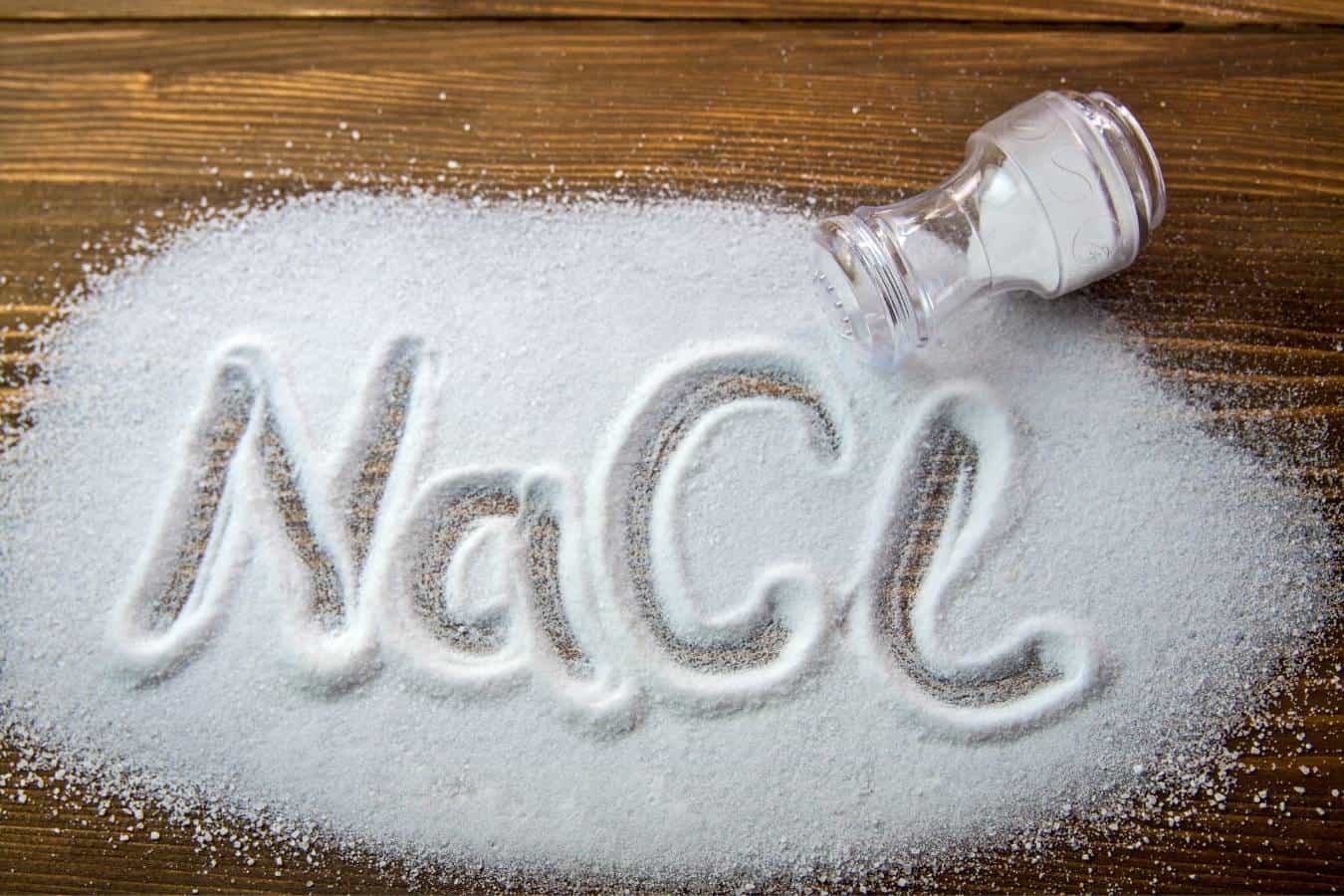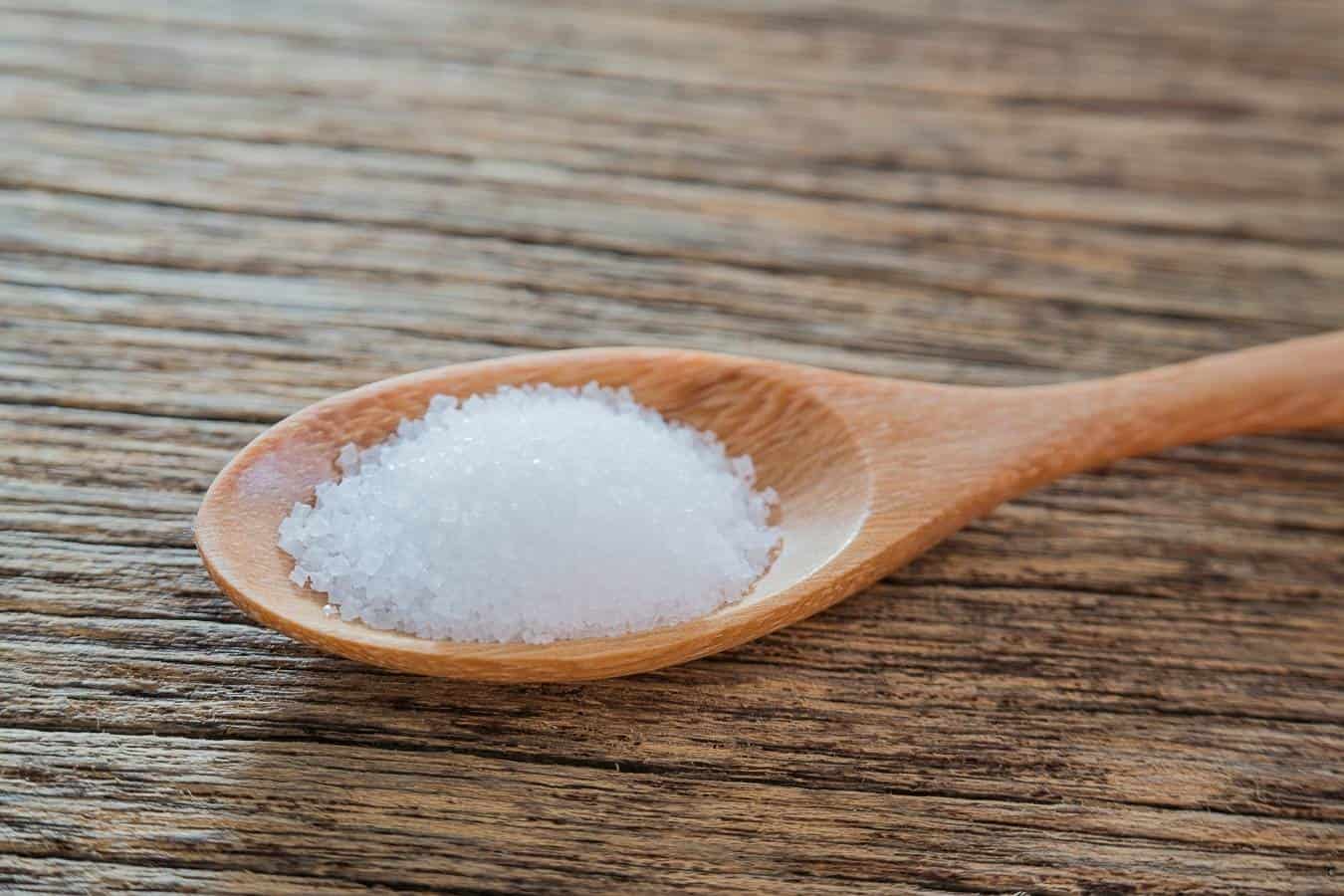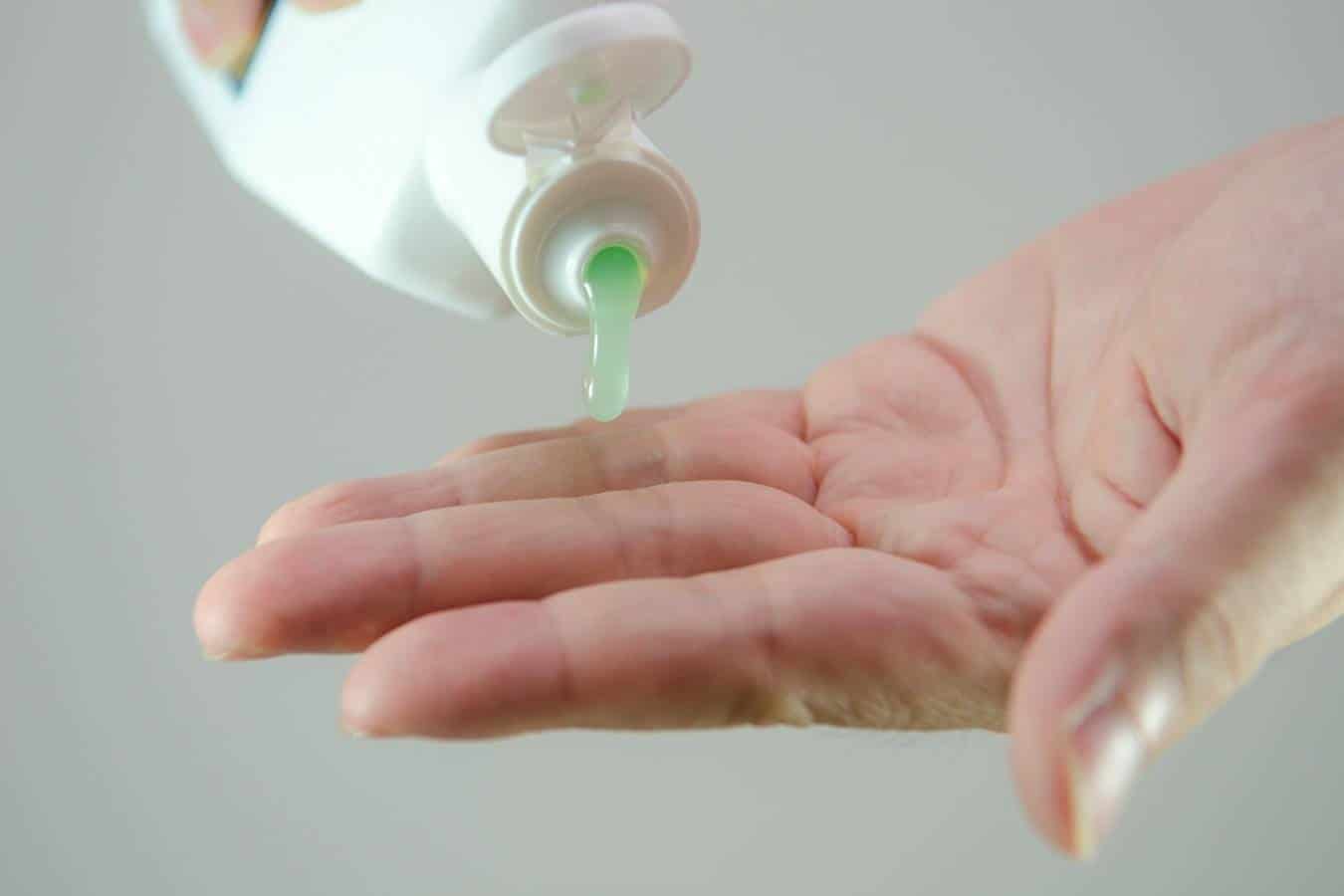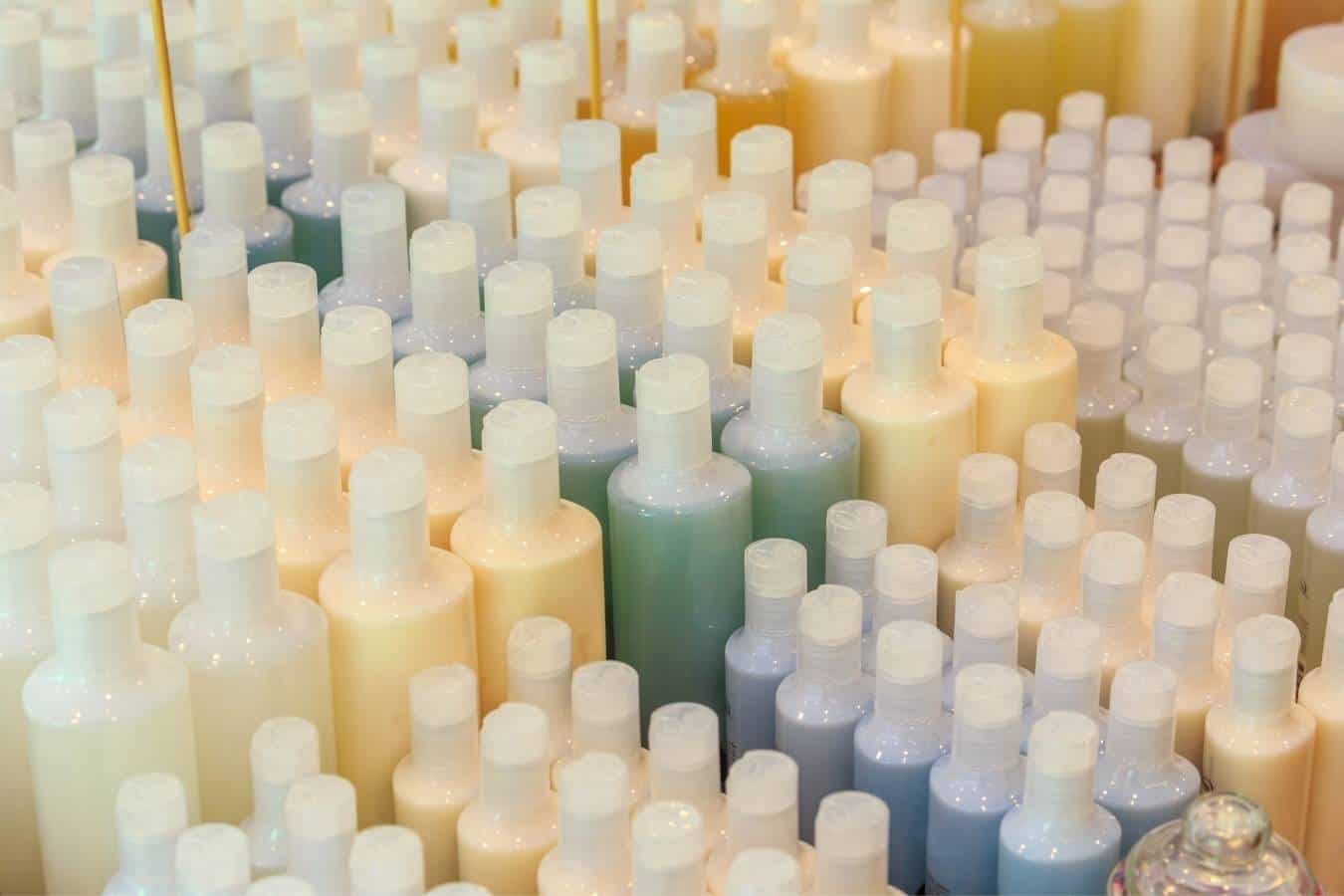Sodium chloride is often used in hair care products, but what is its purpose? In this article, we’ll look at what exactly sodium chloride is and why it’s sometimes listed as an ingredient in shampoo.

Sodium chloride is used as a thickener in a lot of shampoos. Sodium chloride is often combined with sulfate surfactants which cause the shampoo to lather more and it can even make the texture of the shampoo feel creamier and more luxurious.
Written by Alexis Schofield
What Is Sodium Chloride In Shampoo?
Sodium Chloride is the scientific term for table salt, and it is equal parts sodium and chlorine.
By themselves, these ingredients can be very dangerous for the body. But when they are mixed together, they neutralize one another and are generally safe.
Salt is used in lots of things besides shampoos including cooking, cleaning products, and other personal care products.
In all of these products, salt is pulling out most of the moisture present.
So when it is used in shampoo, which goes onto your hair, it draws a lot of the moisture out of your hair and scalp.
Salt also acts as an exfoliator in shampoos, though it can often be too intense and harmful.
Since it almost always overdries the hair, it causes the hair strands to become weaker and more prone to breakage.
Why Is There Salt In Hair Care Products?

Salt or sodium chloride is used in shampoo as a thickening agent. When sodium chloride is combined with sulfate cleansers, it causes shampoo to lather more and helps create a creamier and more luxurious texture.
This is interesting as oftentimes, cheaper shampoos lather more which people mistake for a cleaner wash.
This is not the case. In reality, the ingredients that cause lather can in fact be quite harmful, including sodium chloride.
You may be wondering why manufacturers don’t just use another ingredient to make shampoo lather more.
The reason is simply that they use sodium chloride because it is one of the cheapest and more accessible thickening agents.
So most cheaper shampoos and conditioners that you find at the drugstore have sodium chloride in them.
Is Sodium Chloride Bad For Your Hair?

Sodium chloride has a lot more cons than pros when used in shampoo.
Recent studies have shown that sodium chloride actually does more harm than good to your hair.
In fact, they actually have no effect on how much it’s cleansing your hair.
Here’s a few reasons to avoid sodium chloride in shampoo:
Causes Itchy Scalp
Sodium chloride is known to cause dry and itchy scalp.
Since it is pulling a lot of the moisture from your hair and scalp, it can cause the hair to become too dry.
When this happens, the hair is more prone to damage and breakage.
For some people, this can even lead to hair loss.
Build-Up
Sodium chloride leaves a residue on the hair strands that builds up over time.
This build-up can affect how the hair feels as well as any color/chemical texture services you may get in the future.
Affect Keratin Treatments
Sodium chloride can affect keratin treatments so if you plan on getting one in the future, you definitely want to avoid sodium chloride altogether.
Sodium chloride can actually reverse the effects of a keratin treatment which can be quite frustrating given how expensive they can be.
May Not Be Color Safe
If you have any type of color in your hair, any shampoo with sodium chloride in it is not color-safe.
Sodium chloride can actually affect the color of your hair and make your hair color fade faster.
Skin Irritation
For people with sensitive skin, sodium chloride can also irritate the skin.
If it accidentally makes contact with the eyes, it can cause extreme burning and itchiness.
Other ingredients to look out for include sulfates, silicone, fragrance, alcohol, and chlorine.
If you see any of these, or sodium chloride, in your shampoo bottle’s ingredient list, you may want to put it down and opt for something healthier for your locks.
Benefits of Salt-Free Shampoos

There are definite benefits to using salt-free shampoos. These include:
Healthier Hair
When you first start washing your hair with shampoo that is free from sodium chloride, you may think it isn’t working because it’s not lathering as much as you’re used to.
Do not panic if you notice this happen to you! Salt-free shampoos do not lather as much, and you may need to shampoo your hair twice to get it completely clean.
But, over time, you’ll notice that your hair will feel healthier, look healthier, and it’ll be more manageable between washes.
Retain Moisture
It is important to remember that moisture is one of the most important parts of a healthy hair care routine.
So even if you are using products that increase the moisture in your hair, shampoos with sodium chloride can undo these effects.
Safe To Use With Hair Dye Or Hair Treatments
If you color your hair or have keratin treatments done, you’ll definitely reap the benefits of salt-free shampoos.
Like we mentioned previously, sodium chloride can strip the color of your hair or make it fade faster.
It can also undo the effects of a keratin treatment. With how expensive these services can be, you definitely want to switch to a salt-free shampoo so you’re not wasting your money.
Salt-free shampoos are also a benefit for those with curly or naturally very dry hair.
If you have oily hair, it made be slightly beneficial for your locks, but it still has other negative effects that you may want to take into consideration before using it on your hair.
Overall, sodium chloride really does do more harm than good when used on your hair.
So definitely opt for using a less harsh, salt-free shampoo if possible.
The harmful ingredients used in a lot of personal care products have been trending over the past years. Therefore, a lot of manufacturers will label their shampoos and conditioners clearly if they are free from sodium chloride, sulfates, silicones, fragrance, etc.
This also means that more cost-friendly brands are creating shampoos without the use of sodium chloride which makes them a lot more accessible for everyone.
Disclaimer: This site is not intended to provide professional or medical advice. All of the content on LovedByCurls.com is for informational purposes only. All advice should be followed at your own discretion. Ingredients may change at any time so always check the product label before using. Check our full disclaimer policy here.
